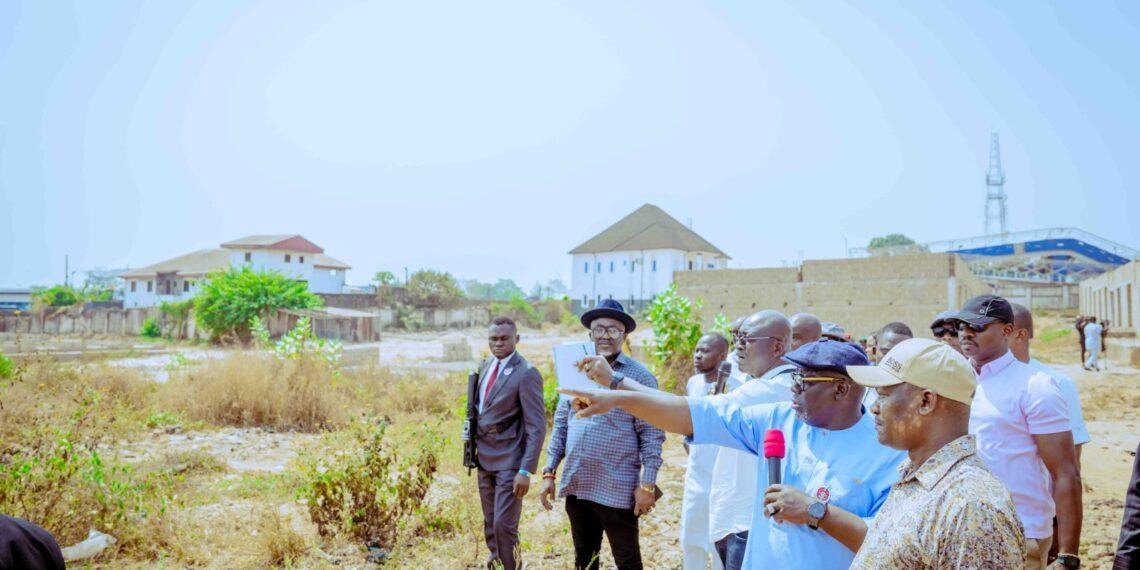Delta State Governor, Rt. Hon. Sheriff Oborevwori, has revealed that his administration’s decision to invest N2 billion on road infrastructure in each of the state’s 25 local government areas is a calculated strategy aimed at promoting sustainable development, economic growth, and grassroots empowerment.
Speaking during the 2025 Maris Annual Public Service Lecture held in Asaba, the governor described the massive investment as a “simple but deliberate” move under his M.O.R.E. Agenda, which stands for Meaningful Development, Opportunities for All, Realistic Reforms, and Enhanced Peace and Security.
Themed “Local Governance and Sustainable Development”, the high-profile event drew stakeholders from across Delta and beyond. Represented by the Commissioner for Special Duties at Government House, Dr. Ifeanyi Osuoza, Governor Oborevwori reaffirmed his administration’s commitment to delivering people-driven projects and strengthening local government institutions.
According to the governor, sustainable development must go beyond slogans and become visible and impactful in every ward, village, and town. He noted that the over N50 billion invested so far in road projects across the 25 LGAs has already started transforming local economies, creating jobs, enhancing connectivity, and opening up previously inaccessible riverine communities.
Read also: Oborevwori urges FG to fast-track completion of Ogwashi-Uku Dam Project
Not all pastors hear from God, Gov. Oborevwori declares
Gov. Oborevwori endorses Tinubu’s second term bid
Oborevwori stressed that local governments remain the closest tier of governance to the people and must therefore be empowered to drive inclusive growth. He explained that his administration has prioritized transparency, accountability, and citizen engagement at the grassroots level to ensure that development is both sustainable and far-reaching.
He also urged community leaders, traditional rulers, and president generals to embrace dialogue and peaceful dispute resolution, emphasizing that peace is the bedrock of meaningful development. “No nation can rise above the strength of its sub-national units,” he said. “The future of Nigeria depends not only on Abuja but on the actions we take in our wards, LGAs, and states.”
The governor thanked the Maris Trust Council for sustaining the annual lecture series and praised the guest lecturer, Sir Patrick Ejidoh, former MD of Champion Breweries, for delivering a compelling and research-based address. Ejidoh called for urgent reforms in local governance, including improved funding, capacity building, clearer roles for local councils, and stronger collaboration with civil society and the private sector.
He warned that Nigeria may fall short of achieving the United Nations’ 17 Sustainable Development Goals (SDGs) by 2030 due to inadequate data, lack of measurable indices, poor planning, and weak implementation frameworks. He stressed that only collective, well-coordinated efforts across all levels of government and society can change that trajectory.
Other speakers at the event echoed similar sentiments. Delta State Commissioner for Works (Rural Roads) and Public Information, Mr. Charles Aniagwu, urged local government chairmen to focus on impactful, low-cost projects like road grading, rural market renovations, and sanitation. He emphasized that governance should be about tangible improvements in people’s daily lives.
Udu LGA Chairman, Mr. Vincent Oyibode, noted that the current administration’s increased funding and performance monitoring have sparked healthy competition among councils, leading to improved service delivery. Entrepreneur and estate manager, Mabel Magbulu, advocated for agricultural investments as a sustainable path to job creation and poverty reduction in local communities.
In his welcome address, Chairman of the Maris Trust Council, Sir Kenneth Olise, represented by pharmacist Paul Enebeli, praised the lecture series—established in memory of Stella-Maris Chukwufunimnenya Egugbo—as a platform for engaging citizens on critical national issues. He applauded Secretary Fidelis Egugbo for his dedication in keeping the series alive and relevant.
Egugbo, while closing the event, thanked all stakeholders and reaffirmed the council’s commitment to offering affordable education through Maris Schools. He promised a bigger and more impactful lecture series on April 1, 2026, urging continued support for the trust’s mission to empower the underprivileged through education.
Dignitaries in attendance included religious leaders such as Rev. Fr. John Konyeke, commissioners, local government chairmen, and senior civil servants. The event trended on social media with the hashtag #MarisLecture2025, highlighting Delta State’s rising status as a hub for thought leadership and inclusive governance.






